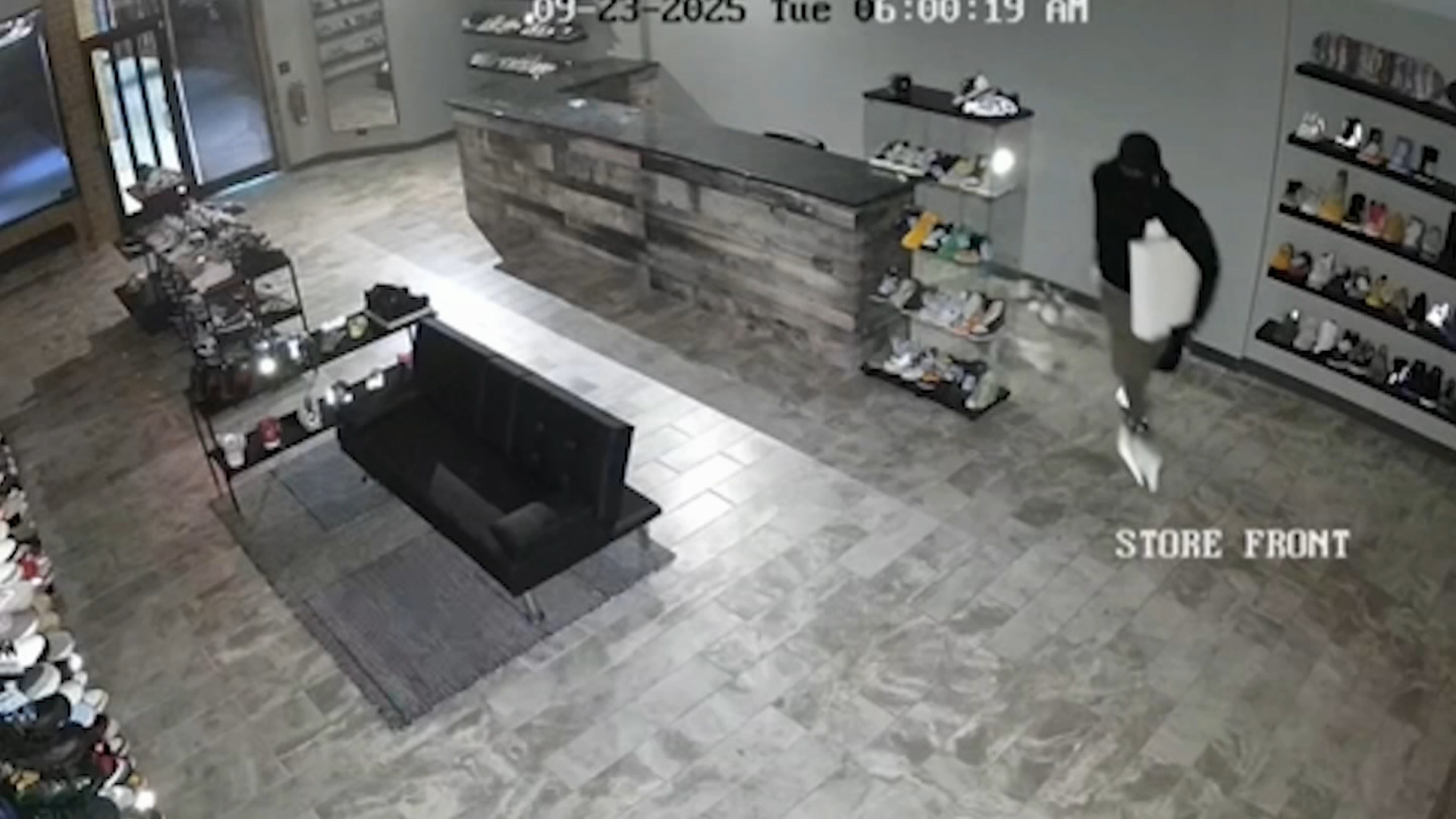Kane County officials are calling out what they say is an unintended impact from Illinois' cashless bail system.
In a recent update issued by the Kane County Sheriff Ron Hain, authorities say that while "the main intent of the legislation was to reduce jail populations and minimize wealth and racial disparity of those held in custody under the cash bail system," they have actually seen a dramatic rise in population.
"When Sheriff Ron Hain took office in 2018, the jail population was ranging in the 550’s per day. With the innovative programming, cooperation with our State Attorney’s Office, and understanding from our judicial partners; the jail population fell to an all-time low of 229 by the end of 2022 and recidivism was brought down from almost 49% to 18% during that same time," the sheriff's office wrote. "As of September 18th of 2025, under the Pre-Trial Fairness Act, the Kane County Jail’s population has risen to 401."
The department said the uptick is largely being caused by people not appearing in court under the parameters of the Pretrial Fairness Act, leading to an increase in warrants issued.
But while Hain noted a rise in population, other counties have seen a decrease, according to Dr. David Olson, the co-director of Loyola’s Center for Criminal Justice.
"Prior to the law there were predictions of really horrible outcomes or really great outcomes. And the truth of most policies is it's somewhere in the middle. There's fewer people in jail in most counties," Olson said. "There's a lot of very localized individual factors that drive things like the jail population or the number of people on pre-trail supervision. So the jail populations have gone down slightly, but the number of people on pre-trail supervision has gone up a lot more."
The Cook County Sheriff's Office says that its jail population has increased over the last two years, with the population Wednesday at 6,002, compared to 5,250 on this date in 2023.
“The most significant drop in population at the Cook County Jail occurred in response to bail reforms enacted by the Office of the Chief Judge in 2017. After the Pre-trial Fairness Act took effect, the Jail saw a small reduction in the number of individuals in custody, but it has now gone back to pre-PFA levels," a spokesperson told NBC Chicago.
In Lake County, the population of prisoners stands at 639, up from 590 on this date two years ago, according to officials.
Olson noted that the center's monitoring has not yet flagged "any detectable change in crime with the implementation of the law."
"We have not seen any detectable change in crime with the implementation of the law," he said.
Meanwhile, in Cook County, State's Attorney Eileen O'Neill Burke announced that prosecutors must now seek pre-trial detention for anyone accused of certain crimes, particularly violent offenses, domestic violence cases and sex offenses or crimes against children.
"Under the SAFE-T Act, the state must file a petition to detain an offender before the court can consider it. A judge can no longer hold someone pretrial absent a prosecutor requesting it," O'Neill Burke said in a release.
Because of that, O'Neill Burke said beginning immediately Monday, the Cook County State's Attorney's office will seek detention for anyone accused of the following:
- every detainable felony offense where an offender used or possessed a firearm equipped with an extended magazine, drum magazine, automatic switch, or used a ghost gun or defaced firearm;
- any domestic violence-related, stalking or sex offense where the offender used or possessed a weapon;
- any detainable felony offense that is committed on public transportation;
- all Murder or Class X felony offenses (e.g., First-Degree Murder, Aggravated Arson, Aggravated Battery of a Child, Aggravated Kidnapping, Aggravated Vehicular Hijacking, Armed Robbery, Home Invasion, Solicitation of Murder)
- all sex offenses where the victim was under the age of 13 and the offender was an adult throughout the duration of the offense or when the offense was committed during the commission of another felony; and
- all cases involving the manufacture, dissemination, or possession of child pornography
“Together we are going to build a safer, stronger Cook County and that starts on day one,” O’Neill Burke said in a statement. “Let me be clear: weapons of war, violence against the vulnerable, and rampant harm to our communities will not be tolerated. The SAFE-T Act is a seminal piece of legislation that instills more fairness into our system while also requiring that prosecutors use every tool at their disposal to give victims a voice and keep Cook County safe. I am honored to serve as the new State’s Attorney and excited to get to work.”
The move was praised by Chicago Police Supt. Larry Snelling, who said the plan "will help keep people safer in every neighborhood."
“As a police officer and Superintendent, I know too well the danger that assault weapons, illegal guns, and switches pose to the safety of our communities and the officers who serve them every single day,” Snelling said.
Illinois became the first state in the nation to eliminate cash bail with the SAFE-T Act, despite much debate among legislators and legal challenges that concluded with a ruling from the Illinois Supreme Court.
Under the bill, the state instead allows judges to determine whether individuals accused of a specific set of felonies and violent misdemeanors pose a risk to another individual, or to the community at large. Judges are also be asked to determine whether the defendant poses a flight risk if released. If the judge makes any of those determinations, then the defendant may be held in jail prior to trial.
The list of so-called “forcible felonies” that could invite judicial discretion on pretrial detention includes:
- first and second-degree murder
- predatory criminal sexual assault
- robbery
- burglary
- residential burglary
- aggravated arson
- arson
- kidnapping
- aggravated battery resulting in great bodily harm
- Hate crimes
- attempts of crimes that are detainable
- animal torture and DUI causing great bodily harm
- any other felony that involves the use or threat of physical force or violence against an individual
According to the Cook County Public Defender's office, those accused of "more significant offenses," will appear in court within 48 hours for their initial appearance.
"If the prosecutor petitions for pretrial detention, the court will hold a detention hearing within 24-48 hours. If, at the Detention Hearing, the prosecutor will present evidence that the accused person is a potential threat to community safety or a flight risk," the office said in a release. "The defense attorney can contest this evidence. Based on the evidence presented at the detention hearing, the judge will decide whether to order the accused person detained or released pending the outcome of their case. The judge may order conditions of pretrial release, such as electronic monitoring or curfew. If a person is denied release at the initial hearing, they will have future hearings to contest whether they must continue to be jailed pending trial."
Detention hearings are not mandatory for crimes that include probation as a possible punishment, but judges can still make the determination to keep those defendants incarcerated pending trial if they determine they are a risk to the public.
Supporters of the law said the elimination of cash bail was a step toward fairness in an unbalanced system, while opponents contended the law will neglect crime victims.
.png)






